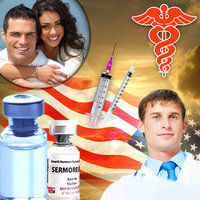Introduction
Lower urinary tract symptoms (LUTS) are a common concern among men, particularly as they age. Recent research has begun to explore the relationship between these symptoms and hypogonadism, a condition characterized by low testosterone levels. This article delves into the diurnal variations of LUTS in hypogonadal men and their correlation with testosterone rhythms, providing valuable insights for urologists and men's health specialists.
Understanding Hypogonadism and LUTS
Hypogonadism is a clinical condition where the body does not produce enough testosterone, a hormone crucial for male development and health. Symptoms can include reduced libido, fatigue, and mood disturbances. LUTS, on the other hand, encompass a range of urinary issues such as frequent urination, urgency, and nocturia. The link between hypogonadism and LUTS has been increasingly recognized, with studies suggesting that testosterone levels may influence urinary function.
Diurnal Variations in Testosterone
Testosterone levels in men exhibit a diurnal pattern, typically peaking in the early morning and declining throughout the day. This rhythm is influenced by various factors, including sleep patterns and stress. Understanding these fluctuations is crucial for assessing their impact on LUTS in hypogonadal men.
Correlation Between Testosterone Rhythms and LUTS
Recent studies have shown that the severity of LUTS in hypogonadal men may vary throughout the day, correlating with their testosterone levels. For instance, some men report more pronounced urinary symptoms in the evening when testosterone levels are lower. This suggests that the diurnal variation in testosterone could be a contributing factor to the timing and intensity of LUTS.
Clinical Implications
The recognition of a potential link between diurnal testosterone fluctuations and LUTS has significant clinical implications. Urologists may consider timing testosterone measurements to better understand a patient's symptoms. Additionally, treatment strategies for hypogonadal men with LUTS could be tailored to address these diurnal patterns, potentially improving symptom management.
Management Strategies
For hypogonadal men experiencing LUTS, a multifaceted approach to management is essential. Hormone replacement therapy (HRT) can be considered to address low testosterone levels, but it should be administered with caution and under close medical supervision. Lifestyle modifications, such as maintaining a healthy weight and managing stress, can also help mitigate symptoms. Furthermore, bladder training and medications targeting LUTS may be beneficial.
Future Research Directions
While the correlation between diurnal testosterone rhythms and LUTS in hypogonadal men is promising, further research is needed to solidify these findings. Longitudinal studies that track testosterone levels and LUTS over extended periods could provide more definitive insights. Additionally, exploring the mechanisms by which testosterone influences urinary function could lead to more targeted therapies.
Conclusion
The diurnal variations in lower urinary tract symptoms among hypogonadal men highlight the complex interplay between testosterone rhythms and urinary health. As our understanding of this relationship grows, so too will our ability to effectively manage LUTS in this population. Urologists and men's health specialists must remain vigilant in recognizing these patterns and adapting their treatment approaches accordingly. By doing so, they can significantly improve the quality of life for men affected by both hypogonadism and LUTS.
Contact Us For A Fast And Professional Response

- Androgen-Dependent Regulation of PDE5 in Prostatic Tissue: Implications for Male Urological Health [Last Updated On: February 17th, 2025] [Originally Added On: February 17th, 2025]
- Unveiling the Role of Prostatic Acid Phosphatase in Monitoring Androgen Activity During Testosterone Replacement Therapy in Men [Last Updated On: March 3rd, 2025] [Originally Added On: March 3rd, 2025]
- Testosterone's Impact on Bladder Health: Insights from Ultrastructural Studies and Therapeutic Implications [Last Updated On: March 7th, 2025] [Originally Added On: March 7th, 2025]
- Understanding Urethral Health Challenges in Androgen-Deficient Men: Histopathological Insights and Treatment Options [Last Updated On: March 8th, 2025] [Originally Added On: March 8th, 2025]
- Testosterone's Influence on Prostate Stroma: Implications for Therapeutic Strategies and Disease Management [Last Updated On: March 9th, 2025] [Originally Added On: March 9th, 2025]
- Exploring the Impact of Hormone Replacement on Pelvic Floor Electromyographic Activity in Hypogonadal Men [Last Updated On: March 12th, 2025] [Originally Added On: March 12th, 2025]
- Prostatic Alpha1-Adrenoreceptor Density, Testosterone, and LUTS Severity in American Men [Last Updated On: March 13th, 2025] [Originally Added On: March 13th, 2025]
- Exploring the Impact of Testosterone Replacement Therapy on Post-Void Residual Volume in Men: A Longitudinal Study [Last Updated On: March 13th, 2025] [Originally Added On: March 13th, 2025]
- Unlocking the Secrets of Lower Urinary Tract Dysfunction in Men: The Role of Urinary Proteomics in Androgen Deficiency [Last Updated On: March 15th, 2025] [Originally Added On: March 15th, 2025]
- Prostatic Aromatase, Estradiol, and BPH Risks in Aging Men on Testosterone Therapy [Last Updated On: March 17th, 2025] [Originally Added On: March 17th, 2025]
- Metabolomic Insights into Testosterone Deficiency: Prostatic Fluid Analysis and Treatment Implications [Last Updated On: March 17th, 2025] [Originally Added On: March 17th, 2025]
- Neural Density in Detrusor Muscle of Hypogonadal Men: Clinical Implications and Therapies [Last Updated On: March 18th, 2025] [Originally Added On: March 18th, 2025]
- Urinary Flow Cytometry: Revolutionizing Hypogonadism Care in American Men [Last Updated On: March 18th, 2025] [Originally Added On: March 18th, 2025]
- Testosterone Therapy's Impact on Prostatic Inflammation in Hypogonadal American Males [Last Updated On: March 19th, 2025] [Originally Added On: March 19th, 2025]
- Androgen-Regulated Gene Expression in Urothelium of American Males Post-HRT: Transcriptomic Insights [Last Updated On: March 19th, 2025] [Originally Added On: March 19th, 2025]
- Testosterone Deficiency Impacts Bladder Muscle Mitochondria: Urological Health Insights [Last Updated On: March 19th, 2025] [Originally Added On: March 19th, 2025]
- Ultrasonographic BWT Assessment in Men with LOH: Urodynamic Correlations and Clinical Insights [Last Updated On: March 19th, 2025] [Originally Added On: March 19th, 2025]
- Testosterone Deficiency and Kidney Stones: Urine Sediment Patterns and Clinical Insights [Last Updated On: March 20th, 2025] [Originally Added On: March 20th, 2025]
- VUR in Hypogonadal Men: Bladder Neck Dysfunction and Hormonal Influences in American Males [Last Updated On: March 21st, 2025] [Originally Added On: March 21st, 2025]
- TRT's Impact on Prostatic Blood Flow: Insights from Color Doppler Ultrasonography [Last Updated On: March 22nd, 2025] [Originally Added On: March 22nd, 2025]
- Urinary Exosomal miRNAs: Biomarkers for Managing LUTS in Hypogonadal Men [Last Updated On: March 22nd, 2025] [Originally Added On: March 22nd, 2025]
- Testosterone Therapy's Impact on Prostatic Hyperplasia in Hypogonadal Men: A Morphometric Study [Last Updated On: March 22nd, 2025] [Originally Added On: March 22nd, 2025]
- TRT's Impact on Prostate Health: Assessing Stiffness with Transrectal SWE in American Men [Last Updated On: March 22nd, 2025] [Originally Added On: March 22nd, 2025]
- Urodynamic Insights and HRT Benefits for Detrusor Overactivity in Testosterone-Deficient Men [Last Updated On: March 22nd, 2025] [Originally Added On: March 22nd, 2025]
- PNEC Density in Androgen-Deficient Men: Impact and Reversal with HRT [Last Updated On: March 23rd, 2025] [Originally Added On: March 23rd, 2025]
- TRT's Impact on Prostatic Smooth Muscle: Electron Microscopy Insights for American Men [Last Updated On: March 23rd, 2025] [Originally Added On: March 23rd, 2025]
- Testosterone Therapy's Impact on PSA Kinetics: Monitoring Protocols and Safety [Last Updated On: March 23rd, 2025] [Originally Added On: March 23rd, 2025]
- Testosterone Therapy Enhances Bladder Sensory Afferents in Deficient Men: A Neurophysiological Study [Last Updated On: March 24th, 2025] [Originally Added On: March 24th, 2025]
- UPP Changes in Hypogonadal Men Before and After Androgen Replacement Therapy [Last Updated On: March 24th, 2025] [Originally Added On: March 24th, 2025]
- DSD in Androgen-Deficient Men: Prevalence, Urodynamics, and Hormonal Links [Last Updated On: March 24th, 2025] [Originally Added On: March 24th, 2025]
- Testosterone's Influence on Bladder ECM: Implications for Men's Urological Health [Last Updated On: March 24th, 2025] [Originally Added On: March 24th, 2025]
- Non-Bacterial Prostatitis and Hypogonadism: Insights and Testosterone Therapy Benefits [Last Updated On: March 24th, 2025] [Originally Added On: March 24th, 2025]
- TRT Improves Micturition Patterns in American Men with Hypogonadism: A Diary Study [Last Updated On: March 24th, 2025] [Originally Added On: March 24th, 2025]
- Testosterone's Impact on Prostate Gap Junction Proteins and Urological Health [Last Updated On: March 25th, 2025] [Originally Added On: March 25th, 2025]
- Testosterone Deficiency and Nocturnal Polyuria: Pathophysiology and HRT Benefits in Men [Last Updated On: March 25th, 2025] [Originally Added On: March 25th, 2025]
- Testosterone Deficiency Impacts Autonomic Innervation and Urological Health in American Men [Last Updated On: March 25th, 2025] [Originally Added On: March 25th, 2025]
- Androgen Deficiency Impacts Bladder Protein Expression: Proteomic Insights and Therapeutic Potential [Last Updated On: March 25th, 2025] [Originally Added On: March 25th, 2025]
- Testosterone Deficiency and Bladder Function: Insights from Ambulatory Urodynamic Monitoring [Last Updated On: March 25th, 2025] [Originally Added On: March 25th, 2025]
- Testosterone Therapy's Impact on Prostatic Hyperplasia in American Men: Growth Factor Insights [Last Updated On: March 25th, 2025] [Originally Added On: March 25th, 2025]
- Prostatic Calcifications in Hypogonadal Men: Prevalence, Composition, and LUTS Association [Last Updated On: March 25th, 2025] [Originally Added On: March 25th, 2025]
- Testosterone Therapy's Impact on Prostate Health: A Histomorphometric Analysis [Last Updated On: March 25th, 2025] [Originally Added On: March 25th, 2025]
- TRT's Impact on Uroflowmetric Parameters and Hormone Levels in American Men [Last Updated On: March 25th, 2025] [Originally Added On: March 25th, 2025]
- Androgen Receptor Distribution in Hypogonadal Men's Lower Urinary Tract: Urological Insights [Last Updated On: March 25th, 2025] [Originally Added On: March 25th, 2025]
- Postvoid Dribbling in American Men: Insights from Videourodynamics and Hormone Therapy [Last Updated On: March 26th, 2025] [Originally Added On: March 26th, 2025]
- PSMA Expression in Androgen-Deficient American Males: Impact of Replacement Therapy [Last Updated On: March 26th, 2025] [Originally Added On: March 26th, 2025]
- ART Modulates Apoptotic Index in Prostatic Epithelium of Hypogonadal Men: Urological Insights [Last Updated On: March 26th, 2025] [Originally Added On: March 26th, 2025]
- Testosterone Therapy Enhances Urethral Sphincter Function in Hypogonadal American Males: EMG Insights [Last Updated On: March 26th, 2025] [Originally Added On: March 26th, 2025]
- Testosterone Deficiency Impacts Prostatic Secretions: Biochemical Analysis and Urological Management [Last Updated On: March 27th, 2025] [Originally Added On: March 27th, 2025]
- Neurogenic Bladder in Men: Urodynamics, Hormones, and Metabolic Syndrome Insights [Last Updated On: March 27th, 2025] [Originally Added On: March 27th, 2025]
- Testosterone Deficiency Impacts Bladder Function: Insights from Intravesical Pressure Profiles [Last Updated On: March 27th, 2025] [Originally Added On: March 27th, 2025]
- Androgen Deficiency and Urinary Flow: Urodynamic Insights for American Males [Last Updated On: March 27th, 2025] [Originally Added On: March 27th, 2025]
- Hypogonadism's Impact on Bladder Neck Collagen and Urodynamics in American Men [Last Updated On: March 27th, 2025] [Originally Added On: March 27th, 2025]
- TRT's Impact on Prostate: Doppler Ultrasonography Insights for American Men [Last Updated On: March 27th, 2025] [Originally Added On: March 27th, 2025]
- Prostatic Stromal AR Mapping: Insights into LUTS Pathogenesis and Management [Last Updated On: March 27th, 2025] [Originally Added On: March 27th, 2025]
- Testosterone Replacement Therapy Enhances Bladder Sensation in Deficient Men: QST Study [Last Updated On: March 28th, 2025] [Originally Added On: March 28th, 2025]
- PUM in Hypogonadal Men: Prevalence, Impact, and Reversal with Testosterone Therapy [Last Updated On: March 28th, 2025] [Originally Added On: March 28th, 2025]
- LOH Impact on Bladder Compliance: Urodynamic and Hormonal Insights for American Men [Last Updated On: March 28th, 2025] [Originally Added On: March 28th, 2025]
- Testosterone Fluctuations and Qmax Variability in Hypogonadal Men: Urological Insights [Last Updated On: March 29th, 2025] [Originally Added On: March 29th, 2025]
- Testosterone Therapy Enhances Detrusor Wall Oxygenation in Androgen-Deficient American Men [Last Updated On: March 29th, 2025] [Originally Added On: March 29th, 2025]
- PIN Incidence and Surveillance in Hypogonadal Men on Testosterone Therapy in the US [Last Updated On: March 30th, 2025] [Originally Added On: March 30th, 2025]
- 3D Ultrasonography: Monitoring Prostate Health in Men on Testosterone Therapy [Last Updated On: April 2nd, 2025] [Originally Added On: April 2nd, 2025]
- Prostatic Stromal Aromatase and Estrogen's Role in LUTS in Aging American Men [Last Updated On: April 2nd, 2025] [Originally Added On: April 2nd, 2025]
- Testosterone Deficiency and Cystometric Capacity: HRT Effects in American Males [Last Updated On: April 3rd, 2025] [Originally Added On: April 3rd, 2025]
- TRT Enhances Urethral Function in Hypogonadal Men: A UPP Topography Study [Last Updated On: April 5th, 2025] [Originally Added On: April 5th, 2025]
- Bladder Wall Fibrosis in Men: Grading and Hormone Therapy Benefits [Last Updated On: April 9th, 2025] [Originally Added On: April 9th, 2025]
- TRT's Impact on Periurethral Vascularity in American Males: Power Doppler Ultrasonography Insights [Last Updated On: April 9th, 2025] [Originally Added On: April 9th, 2025]
- Testosterone Deficiency and Bladder Health: Role of Suburothelial Myofibroblasts [Last Updated On: April 9th, 2025] [Originally Added On: April 9th, 2025]
- New Techniques Assess Androgen Receptor Sensitivity in Prostate Health [Last Updated On: April 9th, 2025] [Originally Added On: April 9th, 2025]
- Differentiating Prostatitis-Like Symptoms in Hypogonadal Men: Benefits of Testosterone Therapy [Last Updated On: April 10th, 2025] [Originally Added On: April 10th, 2025]
- Prostatic Elastography: Monitoring Prostate Health in American Men on Testosterone Therapy [Last Updated On: April 10th, 2025] [Originally Added On: April 10th, 2025]
- Testosterone Therapy's Impact on Overactive Bladder in Androgen-Deficient American Men [Last Updated On: April 10th, 2025] [Originally Added On: April 10th, 2025]
- Predicting Prostatic Growth in TRT: A Mathematical Modeling Approach [Last Updated On: April 11th, 2025] [Originally Added On: April 11th, 2025]
- Testosterone Therapy's Impact on Prostate Cell Autophagy in Hypogonadal Men [Last Updated On: April 12th, 2025] [Originally Added On: April 12th, 2025]
- Intraprostatic Hormones and HRT: Impacts on Male Urological Health [Last Updated On: April 12th, 2025] [Originally Added On: April 12th, 2025]
- Testosterone Deficiency Impacts Bladder Function via Altered Nerve Activity in American Men [Last Updated On: April 13th, 2025] [Originally Added On: April 13th, 2025]

















